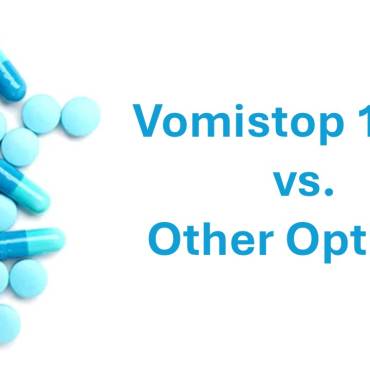A well-researched fact is that right eating habits can make your life disease-free. There are various foods that contain never-ending amounts of healthy sources like proteins, minerals, vitamins, and omega 3 fatty acids. In today’s modern age, omega 3 fatty acidsare hitting the headlines of newspapers or popular health magazines and are useful in preventing all kinds of diseases. There is a never-ending tale of the benefits of omega 3 fatty acids. These are used to regulate blood clotting, helps in building cell membranes and supporting their growth and health. Moreover, the polyunsaturated benefits of omega 3 are heart-healthy kind of fats that help reduce blood triglycerides (fats) and low-density lipoprotein (LDL), the so-called bad cholesterol.
Research about the actual benefits of omega 3 fatty acids is going on and is rising day by day. It is evident that fat gets deposited in the body and plays havoc with our lives. How are omega 3 fatty acidsbeneficial to us?There are many types of fats, out of which omega 3 fatty acids are the substances that offers bountiful health uses.
Also Read: What You Need to Know About Your Dietary Intake?
Why are omega 3 fatty acids important?
Omega 3 fatty acids are polyunsaturated fats that are considered to be one of the world’s healthiest foods. It comprises of three types that are extremely useful in almost every segment of health. Below are the few discussed options:
• Alphalinoelic acid (ALA) – It is an essential part of mega 3 fatty acids and has health supporting properties. It reduces the risk of heart diseases and helps in maintaining its function. It also effectively treats rheumatoid arthritis, multiple sclerosis, diabetes, ulcerative colitis and Crohn’s disease. It has been recommended by the nutritional experts that an individual should get 1.1 to 1.6 grams each day of alpha lineolic acid.
• Eicosanoid – It is an oxygenated product of 20 long chain of the poly unsaturated fatty acid that prominently controls the bodily functions such as inflammation, immunity and handles the messengers in the central nervous system. It has four elements comprises of Prostaglandins, leukotrienes, thromboxanes and prostacyclines.
• Docosahexanoic acid (DHA) – It is a major structural fat present in the brain and retina. This is a key ingredient of heart, brain and retina. This fat is present in more than 90% in the brain and retina. It has a vital role in the development of brain, heart and eye. It has a major role in decreasing the blood thickness and reduces the triglyceride levels.
These all three ingredients makes omega 3 fatty acids a boon to a human health. It promises to increase the lifespan as it decreases the chances of acquiring life threatening diseases.
What are the nutritional perks of omega 3 fatty acids?
The nutritional perks of omega 3 fatty acids are as follows:
• Mental Health – Omega 3 fatty acids are beneficial in improving cognitive learning and memory. They have the power to combat the problem of mood swings, depression and other psychotic disorders. They fight with age-induced dementia, thus preventing Alzheimer’s disease. Higher levels of DHA that are abundantly present in omega 3 fatty acids have been shown to increase the brain IQ levels. For the maintenance of mental health, DHA serves as a fuel that boosts our memory and thinking skills.
• Cardiac Health – Omega 3 fatty acids has been emerged as a heart saviour as its intake has directly cut down the risks of cardiac complications like high triglyceride levels, high blood pressure levels and other associated problems. It decreases the risk of sudden cardiac death, coronary artery disease, myocardial infarction and peripheral arterial disease in smokers.
• Other health problems – Havinga diet full of omega 3 fatty acids reduces the risk of arthritis, cystic fibrosis, type 2 diabetes mellitus, chronic hepatitis C, pneumonia, macular degeneration and allergic rhinitis.
From where we can get omega 3 fatty acids?
The best source of getting omega 3 fatty acids is from cold water oily fish like salmon, mackerel, anchovies, and sardines. Basically, oils from these categories of fishis rich in omega 3 fatty acids, but people should be aware of the harmful effect of the oils, as these contain heavy metals and fat-soluble pollutants like PCBs and dioxins that are known to blot the food chain. There are various other natural sources through which people can get omega 3 fatty acids in the right amount. These include:
• Eggs – Eggs produced by hens are regarded as one of the best sources of omega 3 fatty acids. Hens are fed a diet of greens and insects contain higher levels of omega-3 fatty acids as compared to those produced by chickens who are fed corn or soybeans. The content of omega 3 fatty acids increase in eggs due to the addition of flax and canola seeds to the diets of chickens, which are good sources of alpha-linolenic acid, increases the omega-3 content of the eggs.
• Grass – fed beef- Grass is a good source of omega-3 and when cows eat a grass-based diet, then the result would be different and the meat ends up being a good source of the omega 3 fatty acids.
• Edamame – Edamame are green soybeans (other than mature seeds). These are enriched with omega 3 fatty acids and other nutritional benefits as well. As whole legumes, edamame also provide fiber, you can eat edamame in roasted and semi-cooked form. These can be added to salads, stir-fries and other recipes too to make the diet more nutritious.
Related: How to Increase Your Metabolism?
• Walnuts – As compared to commonly consumed nuts like pistachios and almonds, walnuts stand out for their significant amounts of omega-3. You can add walnuts in your diet as a snack. Moreover, you can also use walnuts by adding these in homemade cookies, which also boosts protein intake and minerals like magnesium, manganese and phosphorus.
• Flaxseed oil – Flax is probably the best known ingredient in breakfast cereal, which is a powerhouse of omega-3. People can avail flax in seed form and in oil form. In both the forms, flax contains about 70 percent of all its fats are polyunsaturated, and 60 percent of its fats are omega-3. Moreover, flaxseeds provide fiber, protein and high levels of lignans. But, it has been recommended by the diet experts to eat flaxseed oil, which is the best plant source of ALA.
• Canola oil – This oil is less expensive as compared to olive oil and is heart-healthy. A tablespoon of canola oil contains 1,300 mg of omega 3’s, which makes it excellent choice for increasing the consumption of the omega 3 ALA. Another benefit of using canola oil is that it can also withstand higher cooker temperatures.
Also Read: Amazing Health Drinks For A Healthy Lifestyle
If you found this blog helpful, then please share it with your friends.



